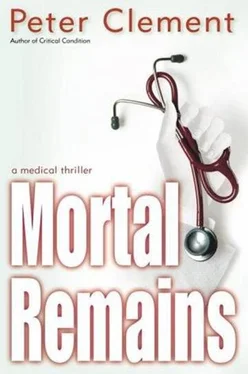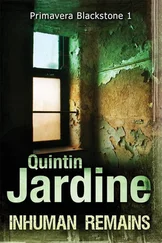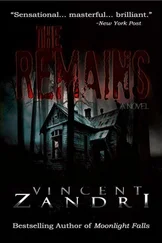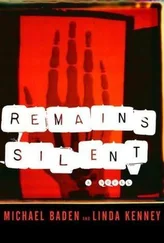Peter Clement - Mortal Remains
Здесь есть возможность читать онлайн «Peter Clement - Mortal Remains» весь текст электронной книги совершенно бесплатно (целиком полную версию без сокращений). В некоторых случаях можно слушать аудио, скачать через торрент в формате fb2 и присутствует краткое содержание. Жанр: Триллер, на английском языке. Описание произведения, (предисловие) а так же отзывы посетителей доступны на портале библиотеки ЛибКат.
- Название:Mortal Remains
- Автор:
- Жанр:
- Год:неизвестен
- ISBN:нет данных
- Рейтинг книги:3 / 5. Голосов: 1
-
Избранное:Добавить в избранное
- Отзывы:
-
Ваша оценка:
- 60
- 1
- 2
- 3
- 4
- 5
Mortal Remains: краткое содержание, описание и аннотация
Предлагаем к чтению аннотацию, описание, краткое содержание или предисловие (зависит от того, что написал сам автор книги «Mortal Remains»). Если вы не нашли необходимую информацию о книге — напишите в комментариях, мы постараемся отыскать её.
Mortal Remains — читать онлайн бесплатно полную книгу (весь текст) целиком
Ниже представлен текст книги, разбитый по страницам. Система сохранения места последней прочитанной страницы, позволяет с удобством читать онлайн бесплатно книгу «Mortal Remains», без необходимости каждый раз заново искать на чём Вы остановились. Поставьте закладку, и сможете в любой момент перейти на страницу, на которой закончили чтение.
Интервал:
Закладка:
“So what’s so interesting? It’s exactly what I’d expect from the son of a bitch.”
“Oh yeah? That mean-mouthed bastard hasn’t been so cordial to me since the first day he came round after I took office. Even then he made it clear that he saw me as small-time, that he was big-city, and that meant I should stay out of his way. Yet here I am calling his big-city self to check on his whereabouts, and he’s polite as can be. What’s a country boy to think?”
Mark perked up. “He’s worried.”
“Yeah. And coming from a guy who normally scoffs in my face, that’s almost as good as an admission he pulled the trigger.”
“So you’ve tossed out the drunken hunter idea.”
“Let’s say I moved it to the back burner. But I can’t arrest Chaz for suddenly being courteous to me. We still don’t have any evidence he took a shot at you.”
Discouraged, Mark hung up at the end of the call and started to salvage the contents of Lucy’s purse from the car floor. The slush from his boots had left everything soggy. A packet of photos had spilled out, and fanned at his feet like a deck of cards.
“I’m afraid these may be ruined,” he said, picking them up and separating them out in the hope they’d dry. He couldn’t help seeing they were all of her in a group hug with four young men. Everyone had broad smiles, and seemed to be from the four corners of the earth. One had Asian features, another Polynesian, the third appeared to be North American Indian, and the fourth, brown-skinned, could have been from anywhere on the planet. Behind them stood a white wall with a red tile roof.
Could one of them be her fiancé? “I’ll spread these out on the backseat. You might be able to save them.”
“Thanks. We rarely see each other these days. I don’t know when there’ll be another chance for all of us to be in a picture together.”
He twisted around and began to place the shots side by side. When he’d finished and she still hadn’t elaborated on who they were, he arranged the pictures a second time.
“So how do you like our little United Nations?”
“Are they your colleagues from Médecins du Globe ?” Mark asked.
She laughed. “No! Those are my brothers.”
“Your brothers?”
Her smile widened, and she seemed to enjoy his confusion. “Yeah. We’re all adopted.”
He looked back at the pictures. And at her. “That’s really, cool,” he said.
“Mom couldn’t have kids, but came from a big family and wanted the same, so she and Dad picked us up wherever he was stationed.”
“Amazing,” said Mark, reaching back and carefully picking up one of the photos. “So tell me who’s who.”
5:15 P.M.
Battery Park Towers,
New York City
Earl sank back in a deep, white leather chair, slowly rotating the tapered stem of his martini glass, and looked around him. “This is quite the place, Melanie.”
“I like it.” She occupied a matching sofa across from him, her legs curled beneath a black dress that set her off in stark contrast to the upholstery. Behind her, along the windows facing east, ran a row of attractive oriental silk screens blocking the view. “The residents tell me some tall son of a bitch wearing a visitor’s pass is stalking our hallowed halls and kicking butt whenever he finds a slacker.”
“I wouldn’t put it that way.”
“Why not? You never could let anything slide, Earl. I doubt that part of you has changed.” She raised her glass to him in a toast.
Not in the mood for reminiscing about their impressions of one another, he simply shrugged and toasted her back. “Tell me about Bessie McDonald,” he said, without pausing to take a sip. “Did she say anything about Chaz Braden that night you visited her two weeks ago?”
Melanie frowned at him. “And still the same old stickler for getting down to business, I see.” She took the time to drink deeply from her tapered glass, the contents a blue concoction she’d made up before he arrived – crushed ice with curaçao, orange vodka, and white rum according to the bottles still on the counter. She waited for him to join her.
He didn’t.
“You don’t like martinis? I can get you something else.” She started to get up.
“No, Melanie, this is fine. Just tell me if Bessie said anything about Chaz Braden.”
She settled back on the sofa. “Well, actually she did. You see, just that morning she’d read in the paper about Kelly’s body being found, and that got her talking about her admission back in ‘seventy-four.”
He felt a surge of excitement and leaned forward. “Go on.”
But after listening to Melanie describe her conversation with her former patient, he fell back in his chair, deflated. It told him nothing new.
“Bessie was my first big case, Earl,” Melanie continued, her voice earnest. “If there’s a moment when I can say I became a doctor, when all the theory suddenly became clear-cut action, it was the night we resuscitated her. Apart from that, I don’t recall much about her admission. But to this day I’ve had a special place in my heart for late bloomers. You know the kind of residents I mean. Nondescript performers one day, then in comes the patient with a problem that they nail before anyone else, and it sets off a spark.”
Earl remembered Melanie coming out of herself in her fourth year, but not that her emergence centered around any specific case. Yet he’d certainly seen exactly what she described happen with his own residents. Reliving this personal epiphany of hers, however, didn’t offer a clue as to what secret Chaz Braden might have been trying to cover up. And Melanie, along with everyone else at the hospital, seemed unable to explain why Bessie now lay in a coma. “Some transient event” had been the best the neurologists came up with after looking at the tests Dr. Roy arranged.
He glanced to his left. Through the west windows he could see the black water of the Hudson where it splayed out to combine with the East River, then continued to flow toward the ocean. He felt the pull of the current on his mood. Even his calls that afternoon to former classmates who’d worked on the digoxin toxicity cases had yielded nothing but exclamations of surprise at his contacting them and no useful recollections about Chaz’s or anyone else’s competence with the medication. There were a few other people yet to reach, but he doubted they’d be any more helpful.
He raised his glass and took a long sip of Melanie’s creation – a blue lady she’d called it. Not bad, for a martini. He usually found them bitter. This had a refreshing, fruity taste.
“Did you have any part to play in the second case, the man who died?” he asked. “I saw your name on the order sheet there as well.”
The makings of a grin played at the corners of her mouth. “Could be. You see, after my triumph with Bessie, I was the floor’s authority on dig for a while, so likely I stuck my nose into that resuscitation as well, if I was around. But I’d have to look at the chart.”
“Would you mind? And could you take a look at Bessie’s old file as well? Those notes might jog your memory about something that’s not written down.”
“Sure.” She leaned forward to take his half-empty glass, got up, and walked with it toward a stunning kitchen area that he knew Janet would die for. Except it looked so polished, he doubted Melanie did any cooking in it.
“That’s a bit of a long shot, isn’t it?” Melanie said, opening a refrigerator the size of his minivan and pouring him a refill from a small pitcher of the cocktail that she’d left chilling in the freezer.
“It’s still worth pursuing, given what little we have. Keep this under your hat, but unofficially Mark Roper thinks Chaz Braden somehow got Bessie to slip into a coma so she couldn’t talk about what happened back then.”
Читать дальшеИнтервал:
Закладка:
Похожие книги на «Mortal Remains»
Представляем Вашему вниманию похожие книги на «Mortal Remains» списком для выбора. Мы отобрали схожую по названию и смыслу литературу в надежде предоставить читателям больше вариантов отыскать новые, интересные, ещё непрочитанные произведения.
Обсуждение, отзывы о книге «Mortal Remains» и просто собственные мнения читателей. Оставьте ваши комментарии, напишите, что Вы думаете о произведении, его смысле или главных героях. Укажите что конкретно понравилось, а что нет, и почему Вы так считаете.












